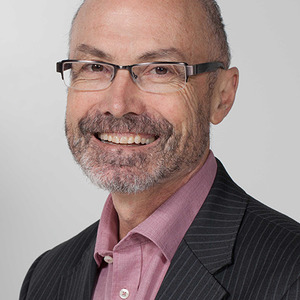Power List

David Anthony Mackey
Power List Profile
Professor of Ophthalmology, University of Western Australia and Lions Eye Institute, Western Australia, Australia
What is an interesting or little-known fact about you?
Six years ago I used genetic testing and then did a massive literature review to recognize that a rare cancer I developed would respond to a COX2 inhibitor and thus avoided major surgery with a relatively safe and inexpensive medical treatment. So I have lived personalized genomic medicine.
Why did you decide to pursue ophthalmology/your subspecialty?
I became interested in genetics and heredity after my primary school teacher asked me to draw my family tree.
Who is someone in ophthalmology/your subspecialty that you feel has been particularly influential over the past 10 years?
I find this hard to answer because, over the last decade, we have really seen the rise of consortia of researchers combining to solve problems using large cohorts of patients – so it is a lot of dedicated people working together.
What’s been the biggest breakthrough in ophthalmology/your specific field over the last 10 years?
The meta analyses of genome-wide association studies (GWAS) has opened our understanding of the biology of most common eye diseases and led to our ability to predict those at risk. It has seen unprecedented levels of collaboration in ophthalmology research.
Is there a particular tool, technological advance, or instrument you would not have been able to live without over the past 10 years?
None of the breakthroughs of the last decade would be possible without the Human Genome Project.
Do you have any strong opinions with which the rest of the field tends to disagree?
I think some treatments for rare diseases are overhyped and overpriced
What would you like to see change in ophthalmology/your subspecialty over the next 10 years?
To see genetics become a routine part of eye care for most eye diseases.
Where do you predict ophthalmology/your subspecialty will be 10 years from now?
We will see the implementation of polygenic risk scores to predict those individuals at highest risk of developing glaucoma and allow early intervention in all ethnic groups.
Do you have any personal missions for the next 10 years?
To help cure optic nerve disease.
Who would you invite to your dream dinner party?
Jane Goodall. I had a brief conversation with her about the conjunctiva of primates and how only humans get pterygium and what might have driven this in evolution. I need to finish that conversation.
